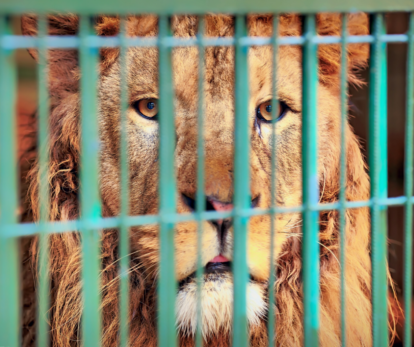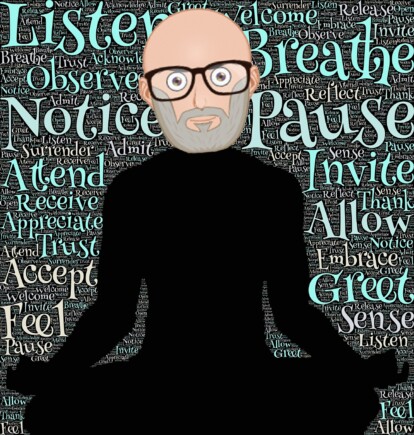The greatest show? Not for the non-human animals in circuses


I’m 48. I like to think a young 48 but, nevertheless, 48.
This means that I have years of habitual decision-making processes that kick in when I go to do what are seemingly simple tasks.
Let me elaborate.
When I think of shaving, I think of plastic disposable razors; when I think of washing up, I think of sponges and washing up liquid in a plastic bottle (and boredom and pain); when my clothes wear out I know I can nip to the shops and replace them quite easily and grab a coffee in a disposable cup and a sandwich in a plastic whatever it’s called that sandwiches come in.
My point is this, for many of us it’s easy to go through life without questioning our simple choices or making changes. But changes, however painful (my metal safety razor is so sharp that it slices off both my hair and my scalp at the same time) and inconvenient, are necessary if we collectively want to do something for this planet and its inhabitants.
My awakening came last year with an unrelated decision. My eldest daughter asked if she could be home educated, and after looking into it, we decided to give it a go. I obviously didn’t look into it fully enough because I had no idea that it meant that I would be getting educated by her.
As a parent, it took me a while to realise that not only could I listen to what I deemed as constant nagging coming from a 14-year-old girl, but I could also take action.
I used to be proud to tell people that I threw away and replaced my washing up sponge every day.
I thought this signalled to the word that I cared about hygiene – I think my ego needed this as I have a reputation for being a bit messy.
It took months of my daughter asking whether I would consider using a brush with a bamboo handle for me to actually realise that she was onto something. I kept telling her, ‘Yes, I would consider it’ and then smiled to myself at a job well done. In my head, I was willing to do my bit. Then, one day, her Derren Brown inculcation technique mysteriously worked and I actually took action and bought some brushes.
No more sponges into landfill (and, at one a day, that’s a lot of sponges).
I have a beard but I do shave my head almost daily. My daughter’s next question was, “Dad, would you consider getting a metal safety razor?” (Believe me, someone was obviously having a laugh when they added the word ‘safety’ to this implement of torture).
Somewhere underneath my soon-to-be regularly nicked scalp, I thought why would I change, I don’t dispose of that many plastic razors a year?
I’ve used a razor since I realised that a bum fluff moustache wasn’t a good look on a 14-year-old boy – hold on…this means that I have disposed of a lot of razors over the last 34 years.
I ordered a metal razor with replaceable metal blades.
Yes, I cut myself a lot at first, but I am pretty good with it now and my dome is as smooth as the cheeks of the boy who had the bum fluff moustache. (You can read how I got on and get tips on how to shave with a metal safety razor on my blog).
Four years ago, I read ‘The Life Changing Magic of Tidying Up’ by Marie Kondo (again, I think someone was having a laugh adding ‘life changing’ and ‘magic’ to ‘tidying up’).
Marie tells you to look at your clothes, one by one. If you feel no love for an item then get rid of it.
I followed her advice.
I reduced my wardrobe down to a small amount of clothing that was easy to fold and put away. I thought, “Why am I holding on to these things that have holes in and are covered in paint stains? I can replace clothing easily and cheaply, I can go to Primark.”
How wrong was I?
The 10-year-old girl who would once happily go to Primark with me is now the 14-year-old who watches documentaries on the cost of throwaway fashion and the suffering endured by children who shouldn’t be spending their days working for next to nothing just so I can experience the life-changing “magic” of a tidy drawer system.
She is the voice in my ear that permeates into my remaining brain cells and makes me question my every purchase. I now shop for secondhand clothing in charity shops, on Ebay and buy the odd eco-friendly, ethically produced new item online.
It has taken a major change in my mindset for this to happen.
Firstly, I have had to stop myself comparing the price of ethically-produced clothing to High Street clothing. The latter may be cheap but it often has a hidden human cost.
Secondly, when I was growing up, telling someone that their clothing looked like it was from Oxfam was an insult.
And, thirdly, the biggest thing that I’m still trying to overcome is the weird, irrational thinking that someone else was wearing this item and I don’t know what they did in it (Note to self: clothing has no memory and washing machines are pretty good at getting rid of real and imaginary nasty stuff on clothes).
The truth is that I have actually grown to love shopping in charity shops as it is more of a challenge and a bit of a treasure hunt. I have a mental list of items that I’m hunting for, including a pair of size 8 roller skates that I am stupid enough to think I will use around town.
Since I have started paying attention to my daughter, we’ve made other changes to how we live and what we buy:
– We all now drink out of metal bottles – it saves on dishwasher space and they can be reused when we go places.
– As a family, we buy less things in plastic wrappers
– I have my dishwasher and laundry tablets delivered monthly in small eco-friendly packaging (and the same with our vitamins)
– I refill my washing up liquid bottles, shower gel, and shampoo and conditioner bottles at the local health food store (of course, there is potential for me to wash the pans in hair conditioner and my body in washing up liquid but it adds a Russian roulette element to my day)
– We use soap bars instead of liquid soap in plastic bottles
– We have reusable cotton pads (I have always been eco-friendly in this department as my daily facial cleansing routine involves three splashes of cold water and a swift rub with my hands – no products needed).
There is still loads that we don’t do and we are far from living an eco-friendly, ethical life but, for me, that’s OK.
Change can be incremental and actually quite easy if you’re open to it.
The initial financial cost can be off-putting but I have found that it evens out as you use the products for longer.
The initial mental cost of not just listening but taking action is also a bit off-putting but there is an unexpected relief that occurs when you drop the baggage of resistance and apathy and try a different approach.
There is also the added benefit of not having to listen to someone asking you the same “would you consider swapping….?” question repeatedly – until, of course, it comes to the next swap – but by then, hopefully, the time spent not doing something actually becomes shorter as you realise that this, in fact, isn’t so hard.
(Billy Bragg or Bob Dylan, if you are reading this, you can have that line for free).
I have and continue to invite changes in with an open mind.
Just because something has been done in a certain way in the past doesn’t always mean it has to stay that way ad infinitum. We all know this and yet many of us still don’t change our behaviour. I am working hard to challenge my own thinking in order to try eco-friendly alternatives.
I have to remind myself that parents don’t always know best. I also must remind myself to not let my daughter read this post!
Vegan Dad has been a stay-at-home dad for nearly 15 years. He home educates two girls and has recently started writing a blog – vegandad.co.uk.
Follow Vegan Dad on Twitter.